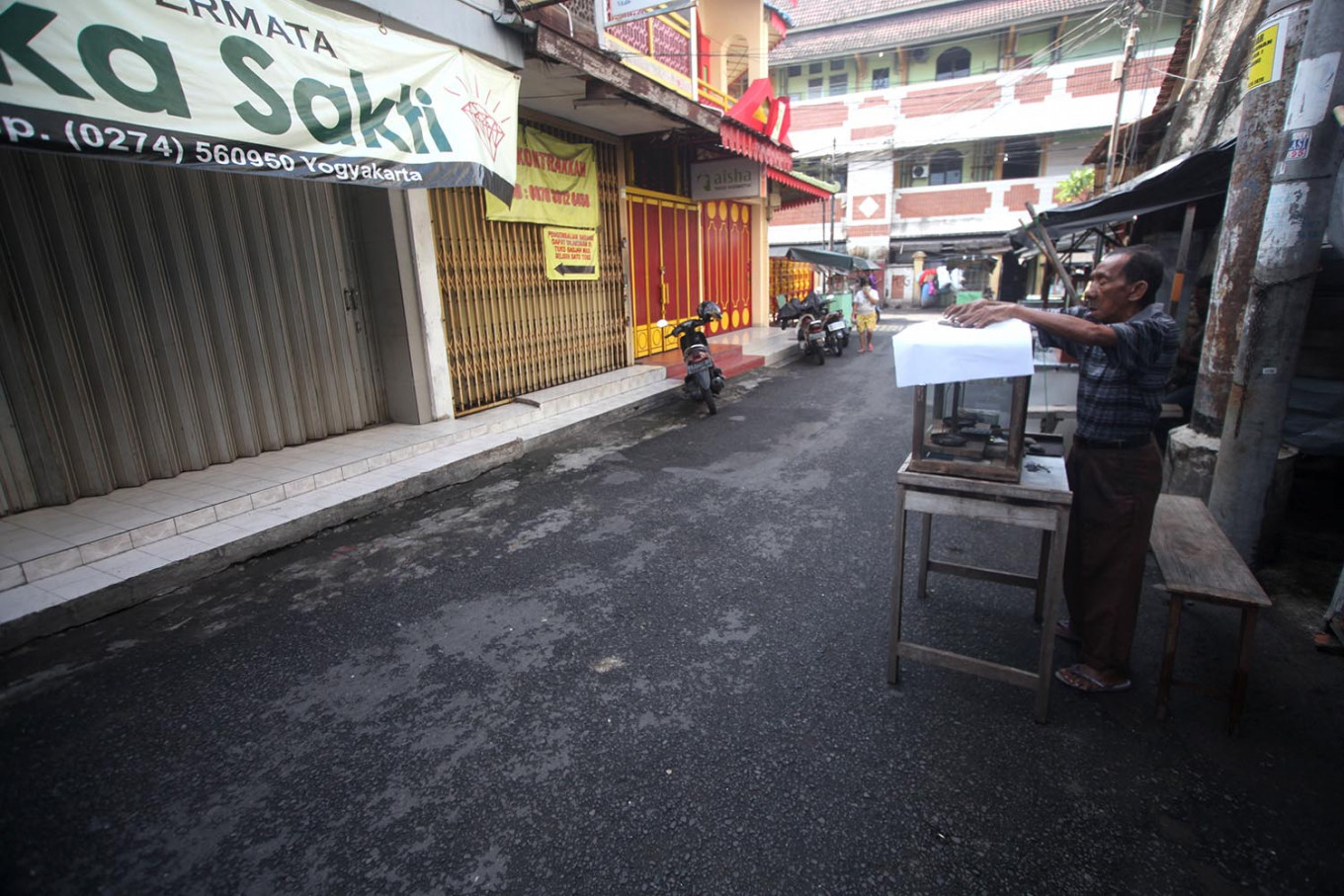Popular Reads
Top Results
Can't find what you're looking for?
View all search resultsPopular Reads
Top Results
Can't find what you're looking for?
View all search resultsIncomes shrank for 75 percent of homes in 2020, SMERU finds
Coronavirus pandemic’s impacts to continue this year
Change text size
Gift Premium Articles
to Anyone
T
hree out of four Indonesian households experienced an income reduction last year as breadwinners either lost jobs, switched to informal jobs or closed businesses during the pandemic while government assistance for small businesses remained limited, a recent survey has found.
The majority of the affected households were located in urban areas and had school-aged children whose education and mental health were strained, according to the joint survey by the SMERU Research Institute, the United Nations Development Program (UNDP), the United Nations Children’s Fund (UNICEF) and the Australia-Indonesia Partnership for Economic Development (PROSPERA).
The survey involved 12,216 households and was conducted from October to November 2020 in all 34 provinces in the country.
“This survey confirms that the impact of the COVID-19 pandemic has been very severe on household finances and is likely to continue in 2021,” Athia Yumna, SMERU’s deputy director of research and outreach, said at a virtual launch of the survey on March 4.
Citing an estimate from UNICEF, she added that the pandemic’s impact on households with children could push more than 2 million children into poverty.
The survey sheds more light on what happened behind the scenes in Indonesian homes as household consumption contracted 2.63 percent in 2020, driving the country to its first annual gross domestic product (GDP) contraction since the 1998 Asian financial crisis.
Statistics Indonesia (BPS) data shows that the economic fallout from COVID-19 also increased the poverty rate by 0.97 percentage points year-on-year (yoy) to 10.19 percent in September 2020, undoing roughly three years of progress. The urban poverty rate saw an annual increase of 1.32 percentage points, more than double the increase in rural poverty.
Read also: Poverty rate hits three-year high
The joint study also found that around half of all surveyed households did not have any savings, which led around one-third to sell or pawn their personal property and around one-quarter to borrow money from relatives or friends to survive.
The pandemic also caused 14 percent of breadwinners to switch jobs, wherein half of them switched from the formal sector to the informal sector.
“The agriculture and construction sectors became a buffer, the largest absorber of that move,” said Athia.
BPS recorded that the share of the informal workforce in the population increased by 4.59 percentage points yoy to 60.47 percent in August 2020. The largest yoy increase in population share occurred among unpaid and contributing family workers with 2.8 percentage points to 14.26 percent.
The survey found that 90 percent of all Indonesian households with small businesses were affected by the pandemic. Of these, only 37 percent were aware of the government’s relief and assistance programs while only 7.5 percent actually received government support.
More women-owned small businesses had to close temporarily due to the economic fallout than those owned by men.
The government has allocated Rp 699.43 trillion (US$48.71 billion) to this year’s national recovery budget, up 20.6 percent from last year’s actualized budget. The single largest allocation was to assistance for small businesses and cooperatives, followed by healthcare stimulus and social protection.
Read also: Government pledges higher spending boost to focus on health
“Going forward, we will focus on policies to counter the economic impacts of the pandemic, which will be game changers: An effective public health intervention to vaccinate 185 million people, social protection programs to help cushion the impact of the pandemic and also ensure business continuity, and structural reforms to help us build back better from the pandemic,” Deputy Finance Minister Suahasil Nazara said in a press release on Thursday.
Development economist Vivi Alatas, formerly lead economist at World Bank Indonesia, said there was still room for improving social assistance, since one out of three households in the bottom 40 percent did not receive any support according to the survey.
“We hope that, going forward, targeting will be improved,” Vivi said at Thursday’s virtual event.
“We need not just data but also a targeting system, so that Indonesia can always effectively and directly respond to help its vulnerable households,” she said.










